Discover Polymer Science Podcast
Polymer Science Podcast
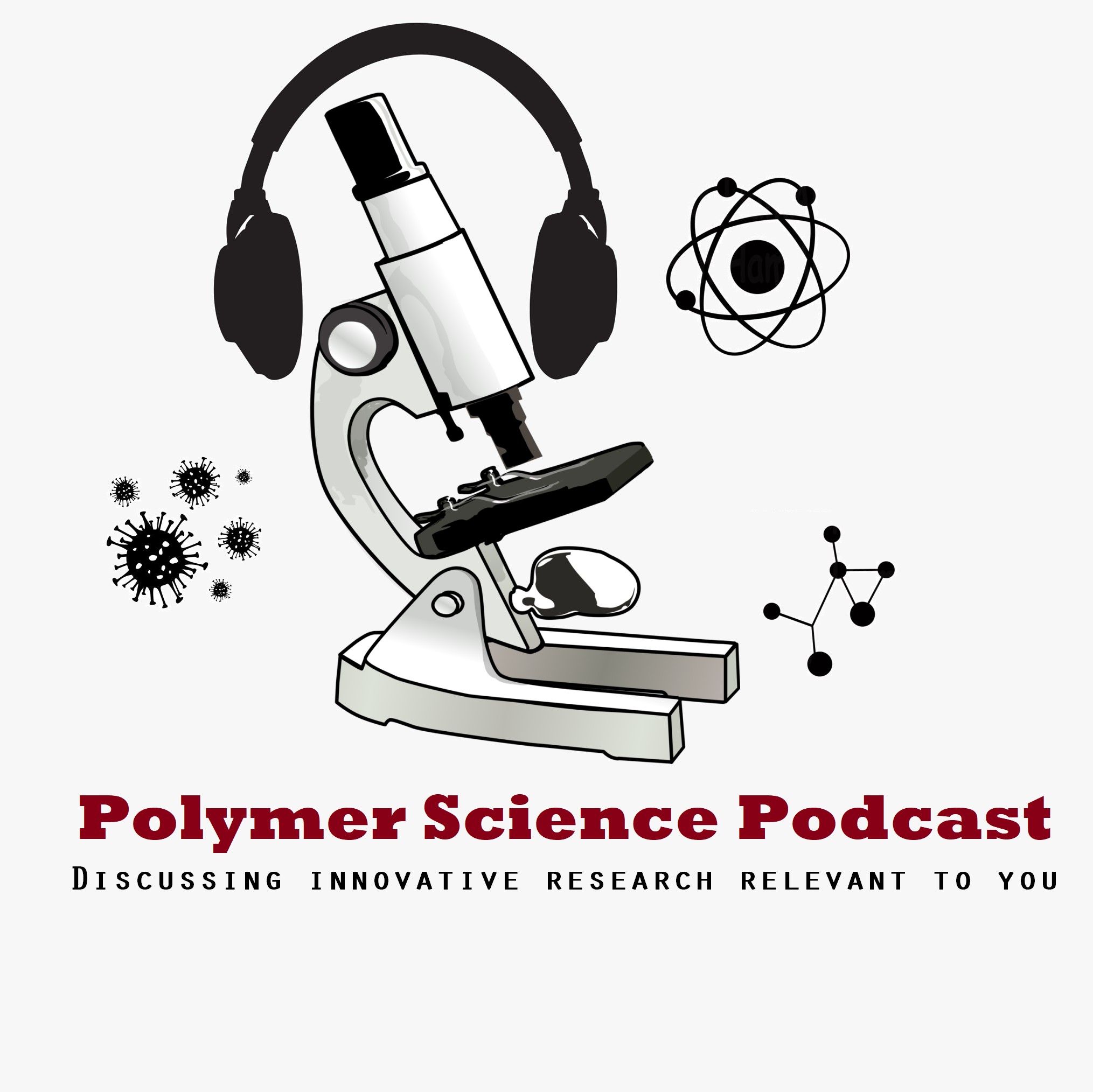
Polymer Science Podcast
Author: Alicia Botes
Subscribed: 87Played: 1,458Subscribe
Share
© CastBox
Description
This podcast will be discussing scientific studies with various researchers from around the world in the Chemistry and Polymer Science fields. We will be bringing current research to your attention that can influence and improve the quality of our daily lives.
We are your hosts, Dr Alicia Botes and Jacob Schekman. Alicia have received her PhD in Chemistry and Polymer Science at the University of Stellenbosch, South Africa and is currently working as an Electron Microscope analyst at the Central Analytical Facility. Jacob is a PhD candidate in Polymer Engineering at the University of Southern Mississippi, United States of America.
Please feel free to connect with us! You can send comments as well as any questions to polymersciencepodcast@gmail.com
Don't forget to subscribe to this podcast and leave a review. Hope you enjoy!
We are your hosts, Dr Alicia Botes and Jacob Schekman. Alicia have received her PhD in Chemistry and Polymer Science at the University of Stellenbosch, South Africa and is currently working as an Electron Microscope analyst at the Central Analytical Facility. Jacob is a PhD candidate in Polymer Engineering at the University of Southern Mississippi, United States of America.
Please feel free to connect with us! You can send comments as well as any questions to polymersciencepodcast@gmail.com
Don't forget to subscribe to this podcast and leave a review. Hope you enjoy!
28 Episodes
Reverse
In this episode we hear from Dr. Benjamin Alameda, a brand new PhD graduate from the University of Southern Mississippi. Dr. Alameda specializes in the design, fabrication, and characterization of polymer networks that degrade in the presence of different external stimuli. As we continue to mold the future of plastics toward more environmentally friendly designs, we need to consider the "cradle-to-grave approach" - that is, designing a polymer material with consideration of the final product's full lifecycle. Imagine tires that can be fully broken down and recycled after several years of use!
Please contact us with any questions or comments at polymersciencepodcast@gmail.com
In this episode we hear from Dr. Christoph Herfurth, a researcher from Fraunhofer. The Fraunhofer-Gesellschaft based in Germany is the world’s leading applied research organization. Prioritizing key future-relevant technologies and commercializing its findings in business and industry, it plays a major role in the innovation process. A trailblazer and trendsetter in innovative developments and research excellence, it is helping shape our society and our future. Founded in 1949, the Fraunhofer-Gesellschaft currently operates 76 institutes and research units throughout Germany. Over 30,000 employees, predominantly scientists and engineers, work with an annual research budget of €2.9 billion. Fraunhofer generates €2.5 billion of this from contract research.
Let us know what you think at polymersciencepodcast@gmail.com
In this episode we are talking to Tshepo Mangoele, CEO and Founder of LignOrganic (PTY) Ltd. This company is the first in Africa to produce Sulphur-free Lignin, a natural polymer with endless possibilities and applications!
Tshepo is a Chemical Engineer with a vision to make environmentally-friendly biomaterials and sustainable products the new normal in markets for cosmetics, packaging, agriculture and biomaterials.
We also get to learn more from him about how it feels to start one's own company and the challenges that come along with such a fulfilling endeavor. I hope you enjoy listening to this inspiring and informative conversation!
Learn more about Lignin here:
https://lignorganic.co.za/
And as promised, check out the affordable and clean skincare range launching soon:
https://ophyll.co.za/
Thank you for listening!
Hello and welcome, everyone, to the Polymer Science Podcast's last episode for 2021!
In this episode we’ll be listening to my interview with Dr. Hyunwoo Yuk, an outstanding research scientist of mechanical and biomedical engineering at the Massachusetts Institute of Technology. I reached out to Dr. Yuk after finding his work on the development of a particularly interesting surgical glue – this glue can close and COMPLETELY seal an open wound in seconds… SECONDS! And the way they came up with this idea is absolutely barnacles… no really, the whole project was actually inspired by sea barnacles! Mother Nature has always been a powerful inspiration for scientific progress, so when Dr. Yuk and his team were tasked with designing a surgical glue that could surpass existing products, they recognized the robustly “sticky” nature of barnacles could provide valuable insight toward their cause. Tune in now to learn about how Dr. Yuk was able to accomplish this incredible task."
Link to article: https://www.wired.com/story/this-barnacle-inspired-glue-seals-bleeding-organs-in-seconds/
Have a Merry Christmas and a Happy new Year!
Thank you for listening
My co-host Jacob Sheckman and I had our very first interview as a duo! Together we had a very enlightening conversation with Dr Monika Snowdon about her PhD work, the projects she is currently busy with, and we learned more about her very own Podcast show, called the IMNano podcast, which she hosts with her co-host, Irfani!
Monika obtained her doctorate in chemistry from the University of Waterloo. Part of her doctoral research was pursued at the National Institute for Material Science in Japan at the soft materials chemistry group under the supervision of Dr. Dai-Ming Tang. She is passionate about making nanoscience and technology more accessible to a wider audience; this drive led to the creation of the nanotechnology podcast which is all about translating cutting-edge research and its applications to society.
Please follow the links below to find out more about Monica and her work:
Podcast Website: https://www.imnano.org/about
LinkedIn: https://www.linkedin.com/in/monikasnow/
Thank you for listening!
In this episode, Dr. Pojman talks with Jacob about the unique reaction properties of frontal polymerization and the serendipity within his research that led to his production and international distribution of Quick Cure Clay. Under the name Pojman Polymer Products, Dr. Pojman’s company produces the most durable and easy-to-work-with clay art on the market. No mixing, no kiln… just mold and heat a part of your beautiful sculpture to begin the cure process, wait a few minutes a then get to painting! Dr. John Pojman is also a professor of chemistry at Louisiana State University. Tune in now for a fun conversation on polymers in art and some fascinating lessons in art history.
Please click on these links to find out more:
Pojman Polymer Products: http://pojman.com/3pllc/3pllc.html
Examples of artist’s creations using Pojman’s “Quick-cure clay”:
https://rangerink.com/blogs/projects/tagged/quickcure-clay
A brief how-to on working with “Quick-cure clay”
https://rangerink.com/blogs/blog/ranger-101-quickcure-clay
Thank you for listening!
Today is a special episode where I catch up with an old Stellenbosch University colleague of mine, Dr Jacquin October. He is a very impressive and dedicated Postdoctoral Researcher at Max Planck Institute for Chemical Energy Conversion. We talked about his move from South Africa to Germany and what that entails. We also discussed the applications and necessity for studies from his previous Ph.D. work concerning Alkylation of amines and the synthesis and characterization of novel rhodium and ruthenium-based iminopyridyl complexes.
You can learn more about his work in the links below:
https://www.linkedin.com/in/jacquin-october-9462b1b1/
https://www.researchgate.net/profile/Jacquin-October
https://www.cec.mpg.de/de/mpi-fuer-chemische-energiekonversion
Thank you for listening!!
It is a week after the Closing Ceremony of the 2020 Tokyo Olympic games, and it is amazing to be able to reflect on the revolutionary technology that we currently have available due to the dedicated mechanical engineers and scientists that are focusing their efforts on providing sustainable and convenient tools to improve society. In Japan, we saw the effective use of bullet trains for quick transport between stadiums, multilingual robotic guides and security guards. The Olympic medals were made of recycled laptops and other electronic devices while self-steering cars have been giving the competitors lifts to their destinations. Viewers even got to see the amazing performances of our athletes from every angle with advanced 3D video capturing technology.
It is therefor only fitting that we are talking to Mechanical Engineering Professor, James Pikul, in this episode about designing metallic wood and the interesting roles that polymers play in improving technology and studies in the Mechanical Engineering field.
James Pikul is an Assistant Professor and a Moore Inventor Fellow in Mechanical Engineering and Applied Mechanics from the University of Pennsylvania. He is the lead of the Pikul Research Group and seeks to make transformative advances in energy storage, energy conversion, multifunctional materials, and robotics by understanding and exploiting nanoscale to macroscopic characteristics of electrochemistry and soft matter.
He graduated at the University of Illinois Urbana-Champaign where he worked on fabricating high power microbatteries and high strength cellular metals. He received a 2020 Moore Inventor Fellowship as well as a 2020 Toyota Programmable System Innovation Fellowship and several awards for his research.
You can find out more about him by following this link:
https://www.linkedin.com/in/james-pikul-25905a13/
Hope you enjoy!
Dr Maliha Syed studied at the University of Mississippi and graduated with her PhD in Polymer Science and Engineering. She is a Principle Scientist for the company called Avlon which focuses on synergizing health, beauty, and polymer science to provide skincare solutions that enhance consumer wellness. Maliha talks to us about hair, nail and skin care and the development strategies behind each product. She helps us understand how polymers are essential in the production of these cosmetics and how the design is optimized for each product application.
You can find out more about her and Avlon here:
https://www.linkedin.com/in/drmalihasyed/
and
https://avlon.com/
Please let us know what you think of this podcast and feel free to send a comment or any suggestions to the Polymer Science Podcast email address:
polymersciencepodcast@gmail.com
Thank you for listening!
Today's episode features Prof. James Rawlins from the University of Southern Mississippi where he focusses his research on structure properties and structure performance relationships of polymer coatings and early detection of corrosion.
Coatings are predominant in our every day life and is used in corrosion control, as decorative covering or even for modifying surfaces to make it more hydrophobic (fabric protectors) or give it antimicrobial properties.
Prof. Rawlins talks candidly about life as a scientist and gives insight and advice on how to approach research projects. He also delves further into fundamentals of coatings so that young researchers that are interested in a career or further research in Polymer coatings can know what to expect.
You can find out more about Prof. James Rawlins by following this link:
https://waterbornesymposium.sched.com/artist/jamesrawlins
Thank you for listening and your continuous support!
Thomas Mortelmans is a PhD student with a passion for Polymers. He talks about how he combines various scientific fields and state-of-the-art nanofabrication techniques for bio-medically relevant applications. He is working on the development of Nanofluidic devices, which would be capable of interpreting pathophysiological mechanisms of Neurodegenerative diseases. The project is a collaboration between the Laboratory of Micro-and Nanotechnology (LMN) at the Paul Scherrer Institute and the Center for Cellular Imaging and NanoAnalytics (C-CINA) at the University of Basel.
You can find him in LinkedIn:
https://www.linkedin.com/in/thomas-mortelmans-066a9a83?originalSubdomain=ch
You can find his Cloudy Gin available in Belgium, that he has created:
https://www.hooch.be/all-inc-mist-gin.html
As promised, here is the images of the Eiffel tower and more created using Two Photon Polymerization 3D printing:
https://www.researchgate.net/figure/Nano-microfabricated-artwork-by-two-photon-polymerization-a-Bull-sculpture-Scale-bar_fig5_287124439
Dr. Danielle Pretorius earned her PhD in Biomedical Engineering at the University of Alabama at Birmingham. Together with Dr. Jay Zhang, she worked on fabricating cardiac tissue patches from human induced pluripotent stem cell-derived cells. They have initially made structures using fibrin, but due to the dynamic nature of cells, the extracellular matrix could be completely remodeled. Danielle and her group's fabrication process has allowed them to achieve previously unseen tissue thickness with minimal necrosis, the ability to match viscoelastic properties to those seen in native left ventricular tissue as well as phenomenal conduction velocities throughout the structures.
If you want to learn more about Dr. Danielle Pretorius and her work you can follow her on LinkedIn where her research articles are also available
Please feel free to contact us at the email listed below. We would love to hear from you!
Polymersciencepodcast@gmail.com
Thank you for listening!
In this Episode we speak to Prof Stachewicz from the AGH University of Science and Technology about two topics that revolve around Bioengineered Electrospun fibers. We first talk about a Water Harvesting system using Polystyrene-Cellulose electrospun fibers. She describes the specific electrospinning process required for the development of "gutter" shaped fibers for these water collection devices in poor or under-developed communities. In the second topic we learn more about Eczema and how the treatment for this disease is being investigated and modified. Prof Ula and her group have developed electrospun patches that can behave as an oil carrier to sooth the irritated skin.
You can have a look at all the work that has been discussed here:
https://www.researchgate.net/profile/Urszula-Stachewicz
https://www.linkedin.com/in/urszula-stachewicz-387b5a1/?originalSubdomain=uk
Thank you for listening!
This episode is filled with information about the engineering and characterization of Exosome-Polymer hybrids. Dr. Upenyu Muza explains to us what exosomes are and how they can be modified and improved for the use in targeted drug delivery and for other medicinal applications by using polymers. He also gives us a detailed description of a very important separation technique called Field Flow Fractionation and how they adjust it to the requirements of their study of Exosome-Polymer hybrids.
I hope you enjoy this talk as much as I did! Please share and give a review if you enjoyed it. Feel free to leave a comment or contact us by emailing to polymersciencepodcast@gmail.com
You can check out Dr. Muza's work here:
https://www.researchgate.net/profile/Upenyu_Muza
And we are back, kicking off the new year with a topic close to our hearts! Today my Co-host Jacob Schekman spoke to Prof. Michael Meier from the Laboratory of Applied Chemistry at the Karlsruhe Institute of Technology (KIT) in Germany.
The topic of sustainable chemistry in the lab is a very interesting and necessary topic. Prof Meier discusses the importance of making scientific experiments more environmentally friendly and being conscientious about decisions made in the lab especially about selecting projects and conducting experiments.
Let us know what you think of this episode and if you enjoyed the new format! We would love to hear from you at polymersciencepodcast@gmail.com
Enjoy!
This year went by with a flash. Wow. It really tested our ability to work together as a society as well as forced us to re-evaluate what is essential and important to our health and well being.
This is a special episode to wrap up this year and to give thanks to everyone who have supported The Polymer Science Podcast so far. We cannot thank you enough!
One thing is certain, the year 2020 have shown us all how important Polymer Science is to our quality of life. In this episode we included some brief news and highlights about Polymer research that is aiding the fight against the pandemic and other interesting aspects of polymers in our daily lives.
We then celebrated the end of this podcast's first season with a fun Q&A so that you can get to know us better. We hope you have a fun time listening to our quirky answers!
You can go ahead and check out an interesting fact that we mentioned in the Q&A section about my co-host, Jacob Schekman, below:
https://www.nobelprize.org/prizes/medicine/2013/prize-announcement/
Other links to check out:
https://www.electrive.com/2020/01/16/eindhoven-introduces-the-recycled-car-luca/
And
https://www.europeanpharmaceuticalreview.com/news/132322/highly-potent-nanoparticle-covid-19-vaccine-designed-using-computer/
Remember to send questions and comments to polymersciencepodcast@gmail.com
We wish everyone a Merry Christmas and we hope you enjoy the rest of the festive season with your loved ones!
Stay safe and we will see you again in January!
All the best,
Alicia and Jacob
This episode contains a fascinating talk with Haydn Kriel, who obtained a MSc in Polymer Science at Stellenbosch University, South Africa and he now resides in Finland and works with the Nordic Biotech Group. We talked about the life of a Polymer Scientist and how to make the best decisions for your career. We also discussed their innovative and sustainable natural disinfectant called Nordshield.
Nordshield is an ISO certified and award winning, multi-purpose product that forms a protective barrier against viruses, fungi and bacteria on treated surfaces like textiles and medical devices to name a few.
You are welcome to visit the Nordshield website:
https://www.nordshield.com/
And follow their amazing contribution to biofriendly and environmentally conscious research on LinkedIn:
https://www.linkedin.com/company/nordshield
Remember to share this episode as well as send questions and comments to polymersciencepodcast@gmail.com
We would love to hear from you and what you want to hear about next!
Today we talked to Dr Nikoline Borgermann, founder of Ava Sustain. This is a consultancy that is dedicated to help labs around the world to reduce their environmental footprint by reducing single use plastic, energy and water waste.
She will be giving tips on how to take the first step toward a "greener" lab and how to overcome obstacles that may be making the change difficult. I hope you find it useful and enjoy the episode!
Check out Ava Sustain on Instagram and twitter @avasustain
You can also reach out to Dr Nikoline Borgermann on her website via www.avasustain.com
She provided us with a link to more information if you are interested in learning about the statistics for energy waste in the labs specifically for fridges:
https://www.mygreenlab.org/-70-is-the-new--80.html
She wrote a blog that you can find via www.labconscious.com/blog/going-green-in-a-wet-lab-symbolic-vs-high-impact-actions
Also, if you want to stay informed and part of the green lab community follow #greenlab #sustainablescience #labwaste #labwasteday
Thank you for listening!
Today we discuss some more interesting details about the electrospinning instrument. I hope you, as a student, researcher or even as a person wondering more about this instrument, find it useful! Please email The Polymer Science team at polymersciencepodcast@gmail.com for any questions or comments!
Hope you enjoy!
Today we are talking to Dr Lisa Fortuin, a postdoctoral researcher at the KTH Royal Institute of Technology. She did her PhD at Stellenbosch University in South Africa, where she used biodegradable polymers to develop prodrugs for targeted drug delivery. She is currently developing part of the layered system that forms the degradable polymer based bone fracture adhesive, which surgeons will eventually be able to use instead of metal plates and screws for bone fracture treatments!
I hope you enjoy listening to this episode! Please feel free to send comments and questions to polymersciencepodcast@gmail.com
You can also check out more about Dr Lisa Fortuin on social media like Instagram and LinkedIn:
@lisafortuij
Thank you for listening!

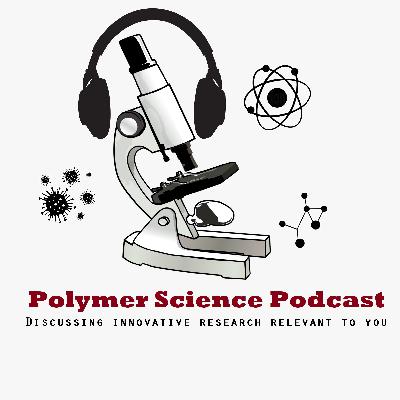


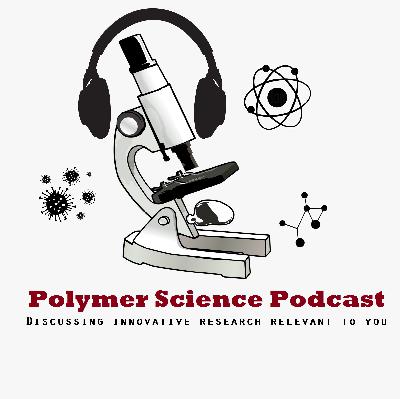
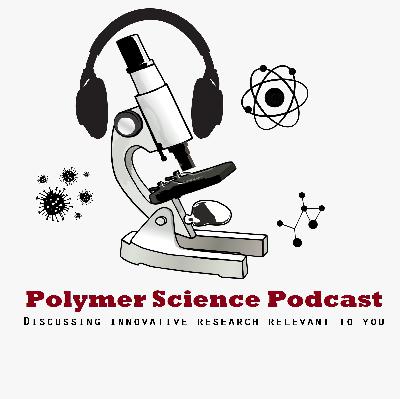
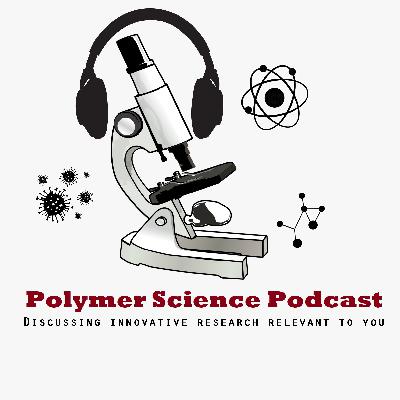
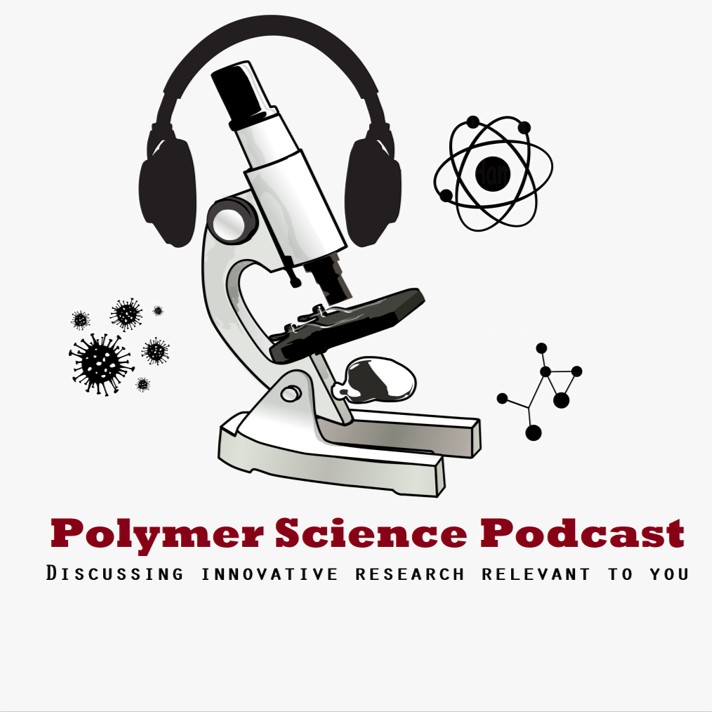
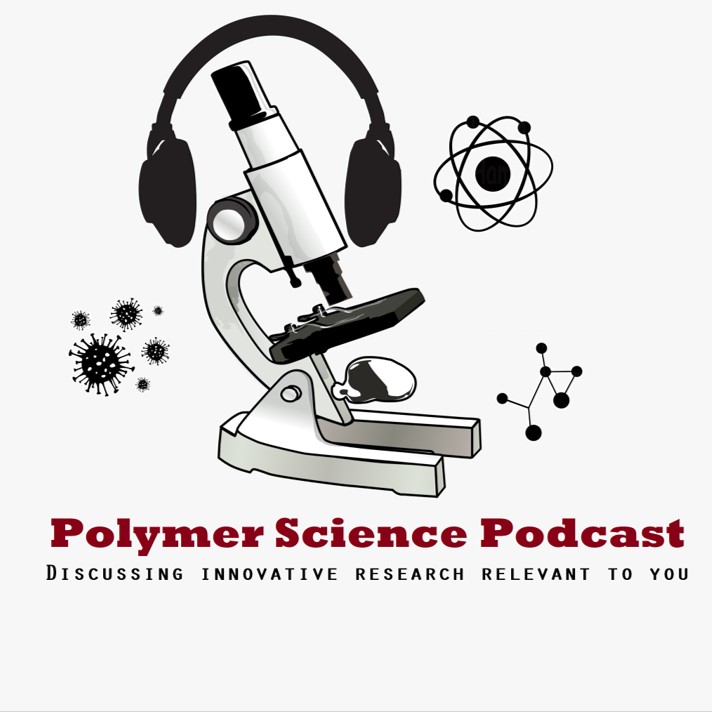
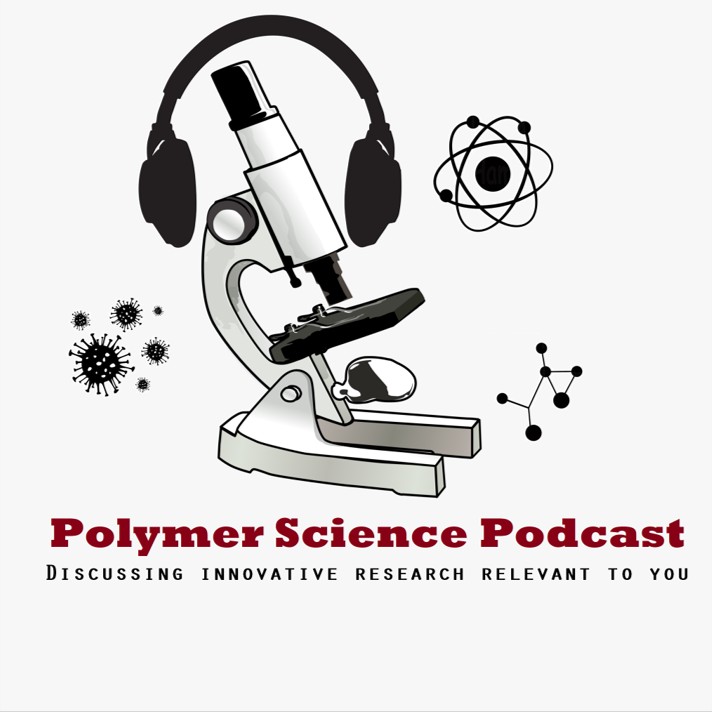
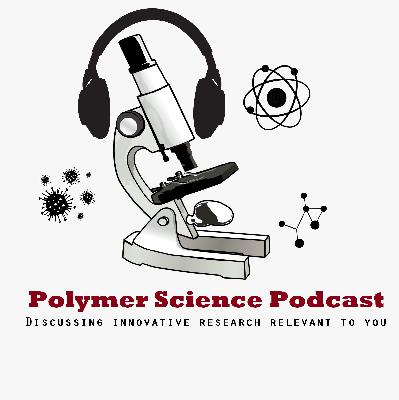


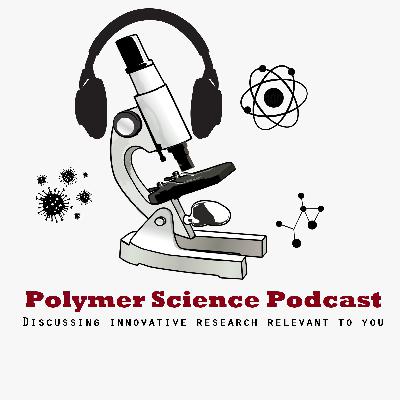
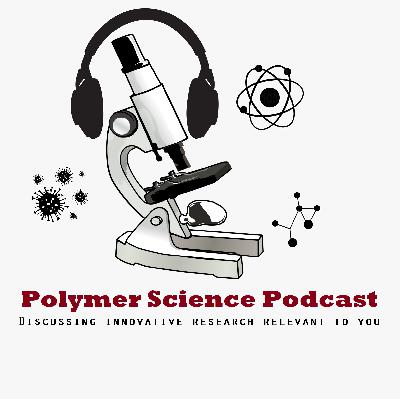
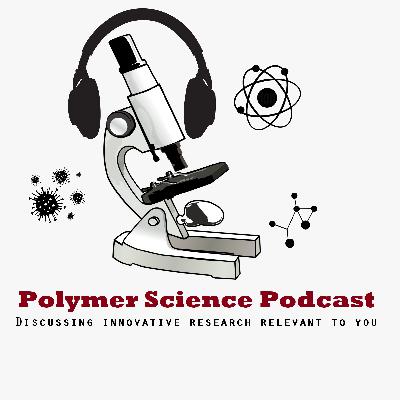



I am actually super happy that I found your podcast as a polymer student. why did it stop? I would be so happy to see new episodes soon
Great Podcast
good luck Hamsa
So insightful, particularly the wax used in the printing process.